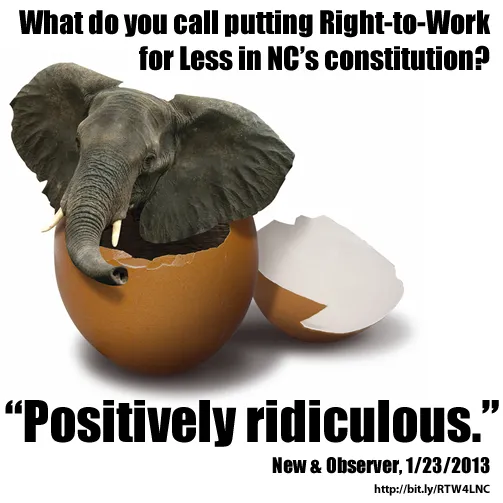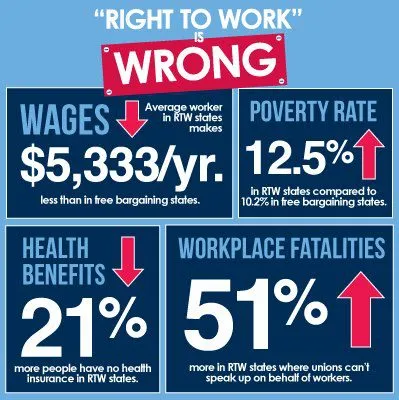Republicans introduce three anti-worker constitutional amendments

Your corporate-bought legislature at work
True to his word, on the first day of business in the new legislative session, North Carolina House Speaker Thom Tillis, along with state Reps. Tim Moffit of Buncombe county and Tom Murry from Wake, introduced one bill to put three anti-worker, anti-union amendments to our state constitution on the ballot in 2014.
Two of the amendments would forever enshrine in North Carolina's constitution our state's right to work for less law and the ban on public employee collective bargaining. The third amendment would attempt to outlaw card check. You can read the text of H.B. 6 for yourself (opens PDF).
"Today Speaker Tillis and Republican legislators made clear their allegiance to Big Business and corporate campaign donors," responded state AFL-CIO Secretary-Treasurer MaryBe McMillan in a statement. "They filed bills not only to gut unemployment benefits but also to include three anti-worker amendments in our state constitution."
"North Carolina already has a right to work law and a ban on public sector collective bargaining. States that have passed amendments related to secret ballot union elections now face lawsuits and legal expenses. These amendments are a ridiculous waste of taxpayers’ time and money. Legislative leaders should instead focus resources on job creation and economic growth. North Carolinians need jobs not ballots full of unnecessary amendments designed to turn out conservative voters and generate more corporate campaign contributions." -- MaryBe McMillan, 1/30/2013
"Right to Work" does wrong by North Carolina workers
Right to Work for Less is "the wrong approach to economic recovery and a strong middle class," writes Sabine Shoenbach, policy analyst for the NC Justice Center:
"Right to work” (RTW) laws have been on the books in North Carolina for decades, but lawmakers are now pushing to enshrine this status in the state’s constitution. Proponents of RTW laws argue they spur economic growth. Yet, research shows that in states where the laws exist, including North Carolina, RTW laws do not create jobs; rather, they lower wages and undermine the middle class.
"Research demonstrates that increased union membership leads to higher wages—for both union members and non-union members—and greater access to benefits such as health insurance and pensions. Such increases in income and the benefits that ensure financial stability for working families strengthen the middle class and local economies."
For more information about why "Right to Work" is wrong for North Carolina's workers and economy, read the full NC Justice Center issue brief (link opens PDF).

Click to share on Facebook.
